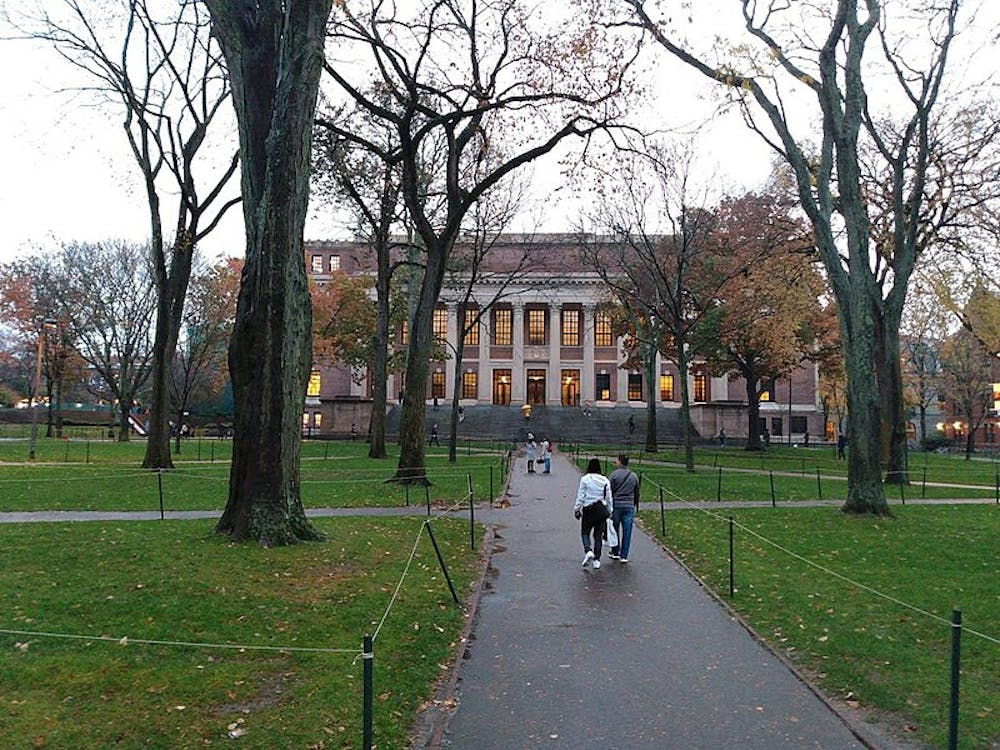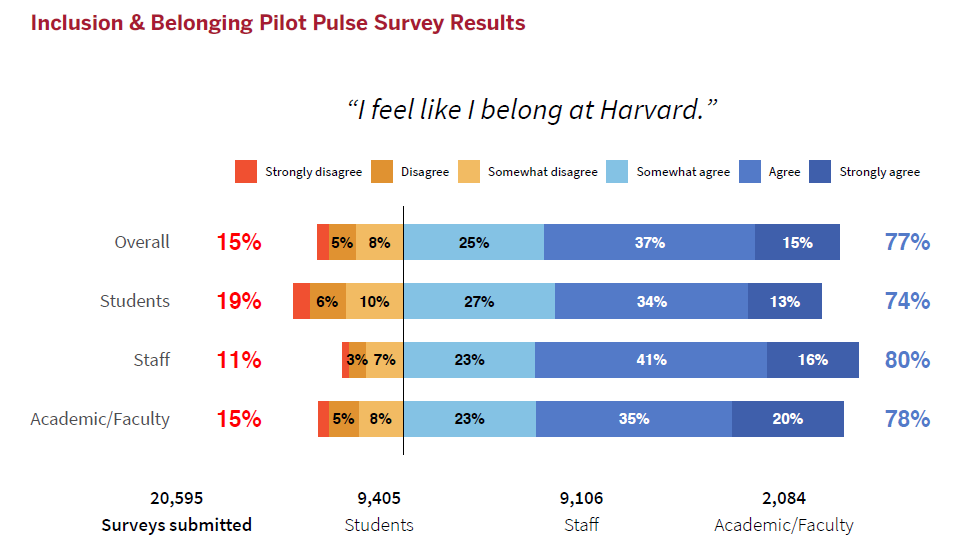SlaveVoyages Harvard marks a significant evolution in understanding the trans-Atlantic slave trade, merging comprehensive historical data with cutting-edge digital scholarship. This project, initiated by renowned scholars, including Henry Louis Gates Jr., provides an invaluable resource for students, researchers, and the broader public interested in exploring the intricacies of the slave trade. At its new home within the Hutchins Center for African & African American Research, the SlaveVoyages database stands as a testament to over four decades of meticulous scholarship, documenting more than 30,000 voyages and 221,000 individuals affected by this devastating chapter in history. With rich visualizations that narrate individual journeys across the Atlantic, the site brings to life the statistics, numbers, and stories often lost in traditional archives. As Harvard continues to reckon with its connections to slavery, SlaveVoyages serves a pivotal role in education and historic understanding of the slave trade.
The SlaveVoyages initiative represents a crucial digital archive dedicated to chronicling the legacies of the transatlantic trade in enslaved individuals. Previously housed at Rice University, this comprehensive database compiles extensive research focused on maritime movements and the social fabric disrupted by slavery. Scholars, led by influential figures like Gates, have collaborated for years to preserve and present this vital information, making it accessible to a global audience. This platform not only sheds light on the complexities of slave trading practices but also serves as a conduit for education and reflection on the profound impacts of this historical phenomenon. As Harvard welcomes this monumental resource, it emphasizes the importance of understanding slavery’s far-reaching implications in today’s society.
The Significance of the SlaveVoyages Database at Harvard
The SlaveVoyages database is a crucial resource for understanding the intricate networks and vast human impact of the trans-Atlantic slave trade. By compiling over 30,000 voyages and detailed records on approximately 221,000 individuals, this digital tool not only sheds light on the historical realities of slavery but also serves as a testament to the collaborative efforts of researchers over four decades. The transition of SlaveVoyages to Harvard signifies a commitment to preserving this vital scholarship for future generations. It allows students, scholars, and the public to engage deeply with the legacy of slavery, enhancing awareness and education around this critical aspect of history.
With its move to Harvard University, the SlaveVoyages database becomes a part of a larger initiative aimed at confronting and understanding the legacies of slavery. Supported by prominent institutes, such as the Hutchins Center for African & African American Research, the database will continue to evolve, providing invaluable data that enriches the ongoing discourse around race and history. As highlighted by Henry Louis Gates Jr., having this resource accessible at Harvard ensures that the voices of the millions affected by the slave trade are not only remembered but also serve as a foundation for education and research.
Impactful Research and Collaborations
The collaborative nature of the SlaveVoyages project, which included contributions from researchers at various institutions, underscores the importance of collective scholarship in unearthing complex historical narratives. During the recent conference hosted by the Hutchins Center, scholars discussed various dimensions of the slave trade, demonstrating the multi-faceted implications of this dark chapter in history. The interdisciplinary approach involving genetic studies, shipboard resistance, and the integration of artificial intelligence showcases how diverse fields can contribute to a more comprehensive understanding of the trans-Atlantic slave trade and its implications.
Furthermore, with the support of initiatives such as the Harvard & the Legacy of Slavery Initiative, the potential for further research and education is amplified. The database serves as a springboard for nuanced discussions about race, memory, and historical accountability. By fostering collaborations between historians, geneticists, and digital scholars, projects like SlaveVoyages encourage a holistic view of history, helping to connect past atrocities with current social justice movements.
Advancing Scholarship through Data Visualization
The use of innovative data visualization tools on the SlaveVoyages platform enhances the accessibility of complex historical information. By utilizing time-lapse animations and engaging 3D reconstructions of slaving ships, researchers can present data in a way that captivates audiences and encourages deeper inquiry. This visual storytelling not only makes learning more engaging but also provides intuitive insights into the scale and impact of the trans-Atlantic slave trade.
As these advancements in data presentation continue to evolve, the SlaveVoyages database positions itself as a leading example of how technology can transform historical scholarship. The ability to navigate vast datasets through user-friendly interfaces empowers both scholars and the general public to explore the intricate narratives hidden within historical texts and records, making the horrors of the slave trade more tangible and comprehensible.
Henry Louis Gates Jr.’s Role in SlaveVoyages
Henry Louis Gates Jr. has played a pivotal role in the advancement of the SlaveVoyages project, advocating for its significance both academically and socially. As the director of the Hutchins Center, Gates has emphasized the importance of facilitating open access to historical data related to slavery, thereby encouraging a shift in how institutions acknowledge and engage with their historical ties to oppressive practices. His involvement ensures that the project’s narrative and findings are preserved and prominently integrated within Harvard’s educational mission.
Under Gates’ leadership, the SlaveVoyages project is set to further explore the complexities of African diaspora experiences, linking back to the origins of slavery and its long-lasting implications. By promoting interdisciplinary discussions and collaborations, he fosters an environment where the understanding of slavery is enriched through multiple lenses, from historical data analysis to genetic research. The insights gleaned from such a multifaceted approach enhance not only academic discourse but also the broader public’s understanding of this critical legacy.
The Legacy of Slavery and Education Initiatives
The transition of the SlaveVoyages database to Harvard is a clear acknowledgment of the role that education plays in addressing the legacies of slavery. Initiatives like the Harvard & the Legacy of Slavery Initiative underscore the university’s commitment to confronting its own historical entanglements with slavery while promoting research that informs contemporary discussions on race and justice. The databases provide a foundation for educational projects that aim to engage students in meaningful dialogues about the past and its present implications.
In addition to direct educational benefits, resources like SlaveVoyages are instrumental in fostering public awareness and encouraging a culture of inquiry regarding the slave trade’s impact on modern society. By empowering students and scholars worldwide to access and utilize this data, the initiative reinforces Harvard’s dedication to truth and transparency regarding difficult historical narratives. This approach is vital not just for historical accuracy but also for fostering empathy and understanding across diverse communities today.
Preserving Historical Records for Future Generations
One of the primary aims of moving the SlaveVoyages database to Harvard is to ensure that critical historical records are preserved for future generations. The meticulous work undertaken by scholars to digitize handwritten documents from archives around the world is not just an academic exercise; it is an essential commitment to maintaining the memory of those who suffered through the trans-Atlantic slave trade. By housing this information at a leading educational institution, there is a greater likelihood that future researchers will continue to uncover insights that contribute to the wider historical narrative.
Furthermore, this preservation initiative emphasizes the value of scholarly research in informing public knowledge. As Harvard commits to maintaining these databases systematically, it’s also setting a precedent for other institutions to recognize and honor their roles in preserving brutal histories. By making such resources available, Harvard encourages an ongoing dialogue about the implications of slavery in contemporary society, allowing future scholars to expand upon this foundational work.
Community Engagement and Responsibility
The establishment of SlaveVoyages at Harvard University demonstrates a commitment to community engagement and historical responsibility. By creating a resource that is publicly accessible, the initiative invites individuals from all backgrounds to explore the history of slavery and its enduring effects on society. The project’s open-access model embodies a spirit of inclusivity, allowing users not only to learn about history but also to contribute to its discourse through personal research and inquiry.
Moreover, the engagement with community stakeholders is vital for fostering a broader understanding of the slave trade’s ramifications within social and political contexts. Events and conferences organized around the SlaveVoyages project encourage community participation, allowing diverse voices to be heard in discussions related to history, justice, and reconciliation. This commitment to inclusivity aligns with the broader goals of educational institutions like Harvard, where fostering critical dialogue about complex societal issues is essential.
Interdisciplinary Approaches to Historical Understanding
The SlaveVoyages project exemplifies interdisciplinary approaches to historical understanding, highlighting the importance of viewing history through various scholarly lenses. Researchers from different backgrounds—history, genetic research, and digital humanities—collaborate to enrich the understanding of the slave trade’s complexities and their socio-cultural impacts. This interdisciplinary nature not only enables a comprehensive analysis of data but also fosters innovation in research methodologies.
Key figures like David Eltis and Henry Louis Gates Jr. advocate for such collaborative efforts, promoting the idea that multiple disciplines can converge to shed light on previously underexplored aspects of the slave trade. This approach not only broadens the scope of research but also bridges gaps between traditional historical narratives and contemporary methodologies, allowing for a dynamic engagement with the subject matter. As a result, the SlaveVoyages platform continues to inspire future generations of scholars to think beyond conventional boundaries, enhancing our collective understanding of history.
The Role of Technology in Historical Research
The integration of technology into historical research is prominently showcased by the SlaveVoyages platform. The digital tools employed by the project facilitate the analysis of vast datasets and provide innovative ways to visualize historical events through animations and interactive maps. This technological advancement plays a crucial role in making historical data more accessible and engaging, drawing in a wider audience eager to learn about the realities of the trans-Atlantic slave trade.
As technology continues to evolve, resources like SlaveVoyages utilize cutting-edge tools to enhance the accessibility and relevance of historical scholarship. By embracing digital humanities methods, historians can refine their approaches to presenting complex data and narratives, encouraging broader participation in discussions about history. This transformation signifies a shift in how society engages with the past, paving the way for more interactive and meaningful learning experiences that resonate with contemporary issues surrounding race, identity, and justice.
Frequently Asked Questions
What is the SlaveVoyages database and its significance in the study of the trans-Atlantic slave trade?
The SlaveVoyages database, now hosted by Harvard University, is a vital digital tool compiling nearly four decades of research on over 30,000 slaving voyages and 200,000 individuals involved in the trans-Atlantic slave trade. It serves as a comprehensive resource for scholars and the public, enhancing our understanding of the historical context and human cost of slavery.
How did Henry Louis Gates Jr. contribute to the transition of the SlaveVoyages project to Harvard?
Henry Louis Gates Jr., a prominent scholar and director of the Hutchins Center for African & African American Research, announced the relocation of the SlaveVoyages database to Harvard University. His leadership and advocacy for the project emphasize Harvard’s commitment to education and acknowledging its historical ties to slavery.
How will the Harvard Slave trade initiative enhance the use of the SlaveVoyages database?
The Harvard Slave trade initiative aims to amplify knowledge-sharing and support scholarship by co-funding the SlaveVoyages database. This initiative reinforces the university’s dedication to uncovering the historical truths about slavery and provides resources for students and researchers worldwide.
What types of data can be found in the SlaveVoyages database?
The SlaveVoyages database features extensive records on slaving vessels, including names, voyage routes, and details about individuals involved, such as captains and enslaved people. This rich dataset offers insights into the scale and brutality of the trans-Atlantic slave trade.
Why is the move of the SlaveVoyages database to Harvard important for research on the trans-Atlantic slave trade?
The relocation of the SlaveVoyages database to Harvard is important as it secures a permanent, prestigious platform for ongoing research. It ensures that vital historical data remains accessible and supports future scholarship, educational initiatives, and public understanding of the trans-Atlantic slave trade.
What role does the Hutchins Center for African & African American Research play in the SlaveVoyages project?
The Hutchins Center for African & African American Research plays a pivotal role in the SlaveVoyages project by providing critical funding and support. It fosters research that explores the impact of the trans-Atlantic slave trade and works to integrate this knowledge into broader educational contexts.
How does the SlaveVoyages database utilize technology to visualize the trans-Atlantic slave trade?
The SlaveVoyages database employs advanced technologies, such as interactive maps and 3D visualizations, to illustrate the routes and experiences of slaving voyages. These visual tools enhance user engagement and understanding of the complexities of the trans-Atlantic slave trade.
Who is David Eltis and what is his contribution to the SlaveVoyages project?
David Eltis is an emeritus professor of history and the originator of the SlaveVoyages project. His unwavering vision and dedication to historical research have been instrumental in developing this essential resource for understanding the trans-Atlantic slave trade, culminating in his recognition with the W.E.B. Du Bois Medal.
What educational opportunities does the SlaveVoyages database offer to Harvard students?
The SlaveVoyages database offers Harvard students unique educational opportunities by providing access to extensive historical data that enhances their research and understanding of slavery’s legacy. It fosters an environment of inquiry and critical analysis regarding the historical, cultural, and social implications of the trans-Atlantic slave trade.
| Key Aspect | Details |
|---|---|
| Project Name | SlaveVoyages |
| New Location | Harvard University |
| Data Coverage | 30,000 voyages and 221,000 individuals |
| Establishment Year | Website launched in 2008 at Emory University |
| Funding Sources | Hutchins Center, National Endowment for the Humanities, Andrew W. Mellon Foundation, Emory University, Harvard & the Legacy of Slavery Initiative |
| Conference Highlights | Panels on the genetic impacts, AI integration, shipboard uprisings, and more. |
| Honors Received | David Eltis awarded the W.E.B. Du Bois Medal |
Summary
SlaveVoyages Harvard represents a significant advancement in the documentation and understanding of the trans-Atlantic slave trade. By relocating to Harvard University, this vital resource ensures its preservation and continued accessibility for future generations. This initiative not only highlights the extensive data collated over decades but also underlines the commitment of Harvard to educate and engage with the deep historical ties to slavery. The ongoing collaboration and funding support reflect a dedication to amplifying knowledge, fostering research, and honoring the lives affected by this historical atrocity.




